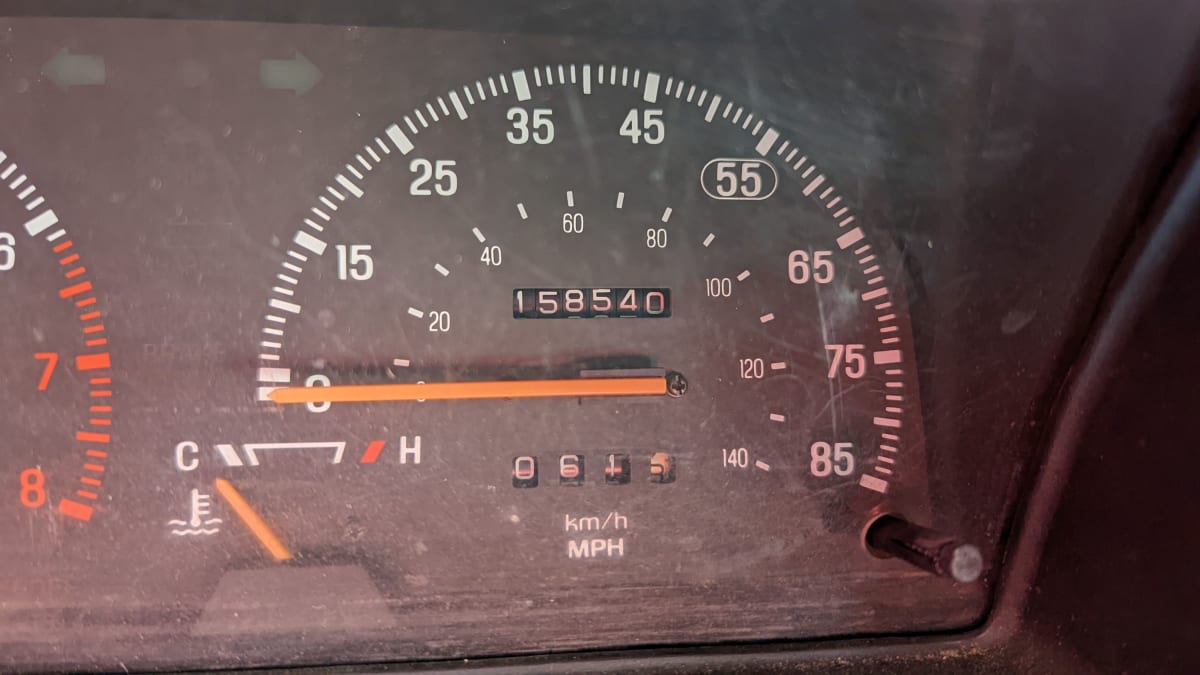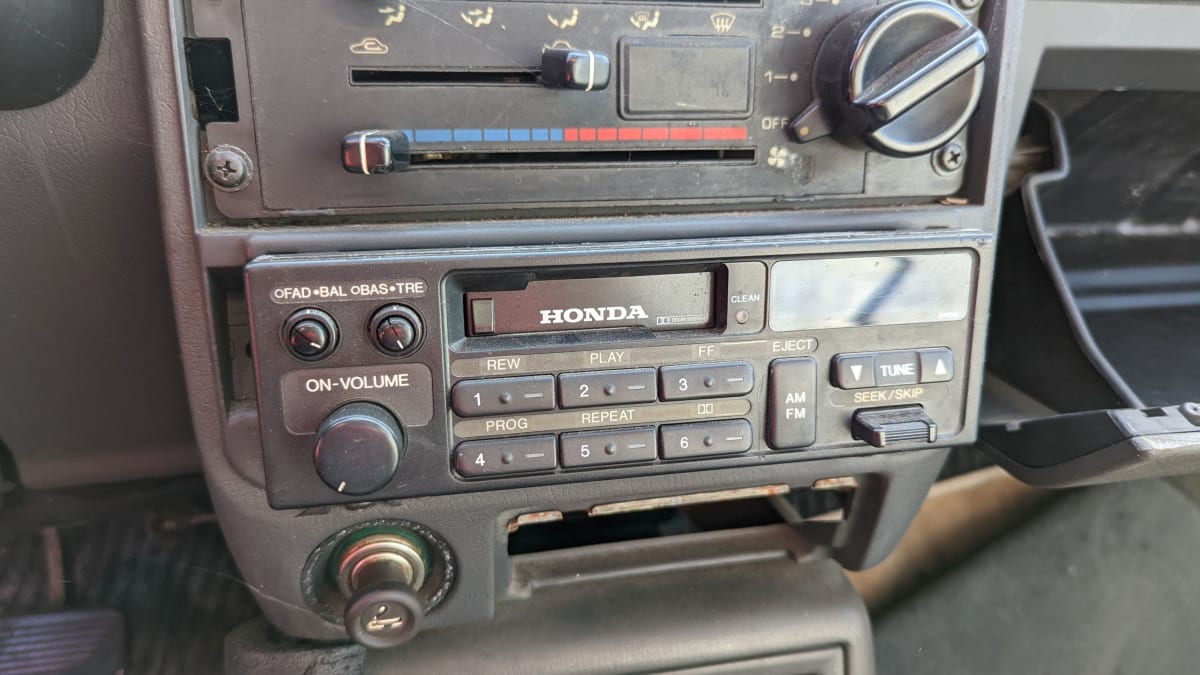Junkyard Gem: 1990 Ford Festiva L Plus

Even though oil prices collapsed during the middle 1980s, Americans could still choose from plenty of new vehicles made with extreme fuel economy in mind during the late 1980s and into the early 1990s. General Motors offered the Suzuki-built Chevrolet Sprint and its Geo Metro successor, while Ford turned to its friends at Mazda for a proper competitor in the super-penny-pinching subcompact market. That was the Ford Festiva, and I found this ’90 in a Northern California boneyard last fall.
Mazda didn’t build the Festivas that we got in North America, though it did build and sell Ford-badged Festivas in Japan. Instead, Ford turned to its friends at Kia Motors in South Korea, who began license-building a version of the Festiva known as the Kia Pride starting in 1986. Beginning in the 1988 model year, Americanized versions of the Pride arrived here from South Korea. Sales continued through the 1992 model year, after which the second-generation Pride became the Ford Aspire in North America.

The Festiva was a bare-bones transportation appliance, and it was very cheap. This one is a semi-upscale L Plus, so its MSRP was $7,111 (about $16,699 in 2023 dollars). The base Festiva for 1990 was the L, and its price tag was just $6,319 ($14,839 today).

$6,319 seems tough to beat, but the Aspire faced some ruthless price competition in 1990. There was no way any manufacturer selling new cars in the United States was going to beat the $4,435 Yugo GV on price (that’s $10,415 after inflation), but few were brave enough to buy a notoriously shoddy car from a country then beginning to disintegrate. Hyundai offered the much bigger and better-equipped Excel for as little as $5,899 ($13,852 now), with Mitsubishi selling the same car at the same price as the Precis. The Subaru Justy listed at $5,866 that year ($13,775 today), the Geo Metro XFi cost $5,995 ($14,078 in 2023 bones, or clams), and the Toyota Tercel EZ cost a mere $6,488 ($15,236). Remember the Daihatsu Charade? In 1990, the Charade’s sticker price was $6,497 ($15,257).

Cars in that price range were considered more or less disposable, but I’ve found a junkyard Festiva that cracked the 300,000-mile barrier. This one just squeezed past 150,000 miles during its 33 years.

1990 was the first model year for electronic fuel injection in the Festiva. This 1.3-liter Mazda straight-four made 63 horsepower.

This is a California-only car, not the smoggier “49-state” version.

The original buyer of this Festiva opted to spend an extra $515 for the three-speed automatic transmission. That’s around $1,209 in today’s money. Air conditioning would have cost another $849 ($1,994 now) but sanity prevailed and this car didn’t get that option.

Someone sprang for a Krusty license plate, which was considerably cheaper than the transmission. California requires front license plates, so anyone driving this car was likely to get hassled by the law from time to time.

Someone installed a 1990s Honda cassette deck, which almost fits the radio opening.

If you liked the Festiva, you can still buy a new one in Iran. That’s because SAIPA began license-building the Kia Pride back in 1993 and continues to sell new cars based on that platform to this day.
42 standard features and a six-year warranty on the powertrain!
It’s so neat. Complete. The word’s on the street.
Oh! Pride!
The SAIPA 131 and its many Iranian-market relatives have been built in huge numbers.
This SAIPA is experiencing depreciation before our eyes.
A version of the Pride-derived SAIPA 141 was assembled in Venezuela and sold as the Venirauto Turpial. Porque socialismo es tecnología y desarrollo industrial al servicio del pueblo.



